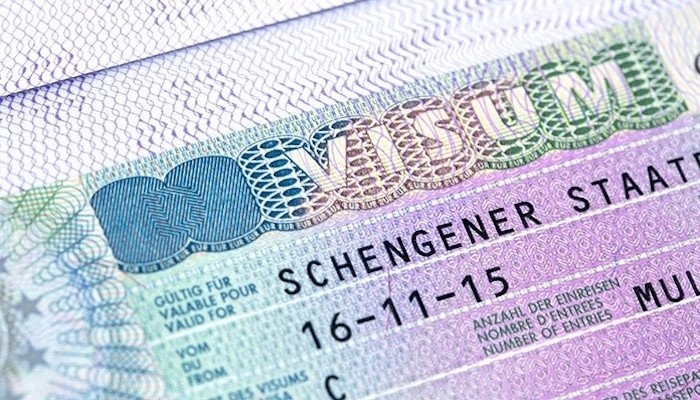Nikolaus Meyer-Landrut, the ambassador and head of the EU delegation to Turkey, has said serious problems faced by Turks in securing visas for their trips to European countries are mainly due to Turkey’s current economy and the increasing number of asylum applications filed by Turkish citizens in EU countries, the T24 news website reported on Monday.
The problems experienced by Turks planning trips to EU countries include long waiting periods for visa appointments, the increasing rate of rejection of Schengen visa applications and the short duration of the visas obtained.
Meyer-Landrut on Monday answered questions on the issue posed by T24, saying there wasn’t a political decision behind the increase observed in Schengen visa rejection rates and adding that it was mainly due to Turkey’s deteriorating economy and the high number of asylum applications filed by Turks in EU countries.
“Maybe we need to take a closer look at why the applications [by Turks] are examined in detail. Turkey is now one of four or five countries whose citizens apply for asylum in Europe the most. … The number has already exceeded 20,000 this year. These developments, of course, play a role in the examination of visas,” Meyer-Landrut said, adding that most of the applications were rejected due to being incomplete or potentially fraudulent.
When asked to elaborate on the role of the Turkish economy in the evaluation of Turks’ visa applications, Meyer-Landrut said that when applying for a visa, people have to make sure that they can support themselves financially in the country that they are going to during their planned travel.
“As the economic situation [of an applicant] becomes more complex, it becomes even more important to examine it [in detail]. Traveling in Europe is becoming [more and more] expensive for the [Turkish] applicants. This is the reality,” he added.
Over the past several years Turkey has been suffering from a deteriorating economy, with the lira, which has lost more than half its value against the dollar in the past year alone and has been the worst performer in emerging markets for several years, being down nearly 29 percent so far this year.
Meyer-Landrut also noted that Schengen visa-related problems aren’t exclusive to Turks and that their visa rejection rate for 2021 was only “slightly above the world average” and not as big a deal as it is considered in Turkey.
When asked whether the EU delegation to Turkey contacted the country’s Foreign Ministry about the issue, Meyer-Landrut replied that Schengen visa-related issues weren’t a new topic for them but “part of our regular dialogue.”
Turkish Foreign Minister Mevlüt Çavuşoğlu said in late August he believed the increase observed in Schengen visa rejection rates was the result of a deliberate effort to put President Recep Tayyip Erdoğan in a difficult position ahead of tight elections next year, an accusation the European Union denies.
Regarding visa-free travel, the ambassador once again pointed to the 72 criteria the EU proposed for Turkey, 66 of which have been fulfilled by the country so far.
Among the remaining issues are reassessing legislation on terrorism in line with EU standards, complying with the same standards on personal data legislation, ensuring judicial cooperation with EU member states on criminal matters, finalizing an operational agreement with Europol and continuing to fight corruption.
According to data from schengenvisainfo.com, 16.5 percent of applicants from Turkey last year were denied a visa, up from 12.5 percent in 2020. Schengen rejections were only 4 percent of the total in 2015 and started increasing in 2017 for Turks, it shows.
According to the statistics previously provided by Meyer-Landrut, Turkey is among the top three countries in the world with the highest number of Schengen applications, with 900,000 applications in 2019, 230,000 in 2020 and nearly 270,000 in 2021.
The cost of a Schengen visa application — amounting to some 100 euros, or a third of Turkey’s minimum wage — is not refundable whether a visa is issued or not. On top of the visa fees are many required documents for the visa, such as a round trip reservation and itinerary, travel insurance policy, proof of accommodation, proof of financial means and more.
Although the documents required may change minimally depending on the member state, they are for the most part identical.

